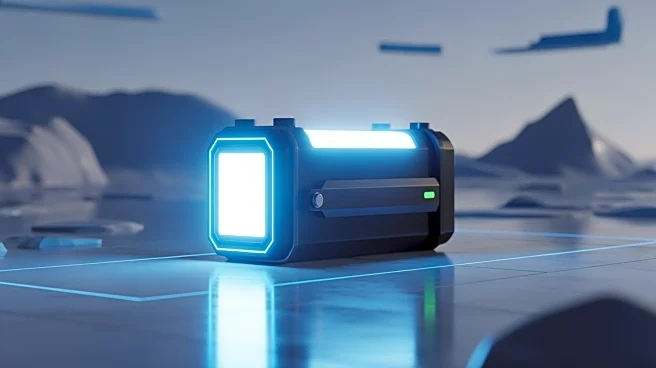What's Happening?
Swedish maritime battery systems specialist Echandia has been awarded a contract by ABB to supply a 3.7 MWh battery system for a new hybrid icebreaker vessel for the Canadian Coast Guard. The vessel, to be constructed
at Helsinki Shipyard, will operate as a hybrid ship, integrating conventional propulsion with advanced battery technology to enhance energy efficiency and reduce emissions in Arctic conditions. This contract marks Echandia's first entry into the Canadian market, expanding its global presence in sustainable maritime propulsion. The selection of Echandia's LTO-based battery system was based on its proven performance in extreme environments with limited space. Delivery of the battery system is scheduled for the second half of 2026, with the vessel expected to enter service by 2028.
Why It's Important?
The contract is a significant milestone for Echandia, as it opens access to a new and strategically important market. It underscores the trust placed in Echandia's technology by industry leaders like ABB and the Canadian Coast Guard. The development of hybrid icebreakers is crucial for reducing emissions and improving energy efficiency in challenging Arctic environments, aligning with global efforts to combat climate change. This advancement in maritime technology could set a precedent for future vessel designs, promoting sustainable practices within the industry.
What's Next?
The delivery of the battery system is anticipated in the latter half of 2026, with the icebreaker expected to commence operations by 2028. This timeline allows for further advancements in battery technology and hybrid propulsion systems, potentially influencing future contracts and collaborations within the maritime industry. Stakeholders, including environmental groups and maritime organizations, may closely monitor the project's progress as it represents a shift towards greener maritime operations.
Beyond the Headlines
The integration of advanced battery systems in icebreakers highlights the growing importance of sustainable technology in maritime operations. This development could lead to increased investment in research and development for hybrid and electric propulsion systems, fostering innovation in the industry. Additionally, it may prompt regulatory bodies to consider new standards for emissions and energy efficiency in maritime vessels.










